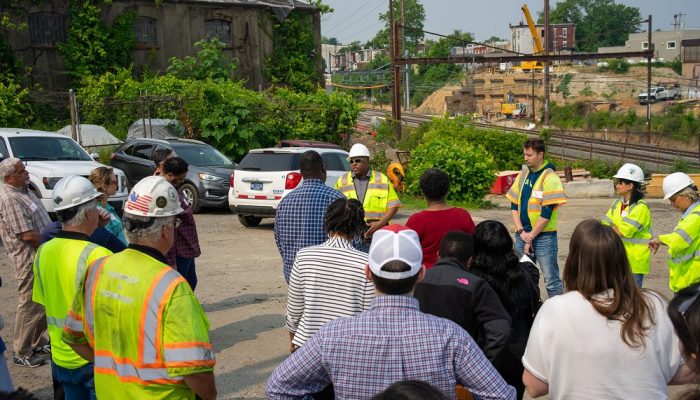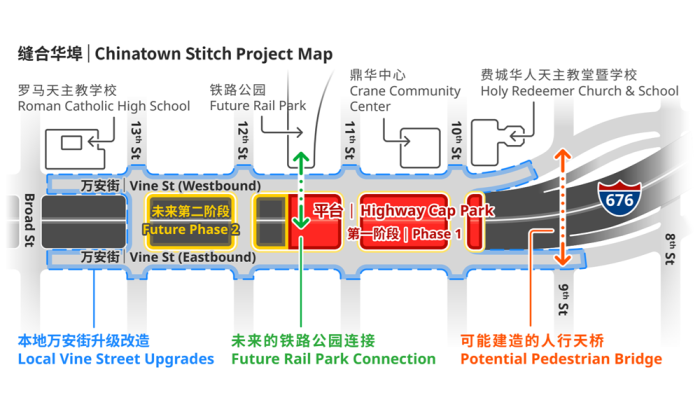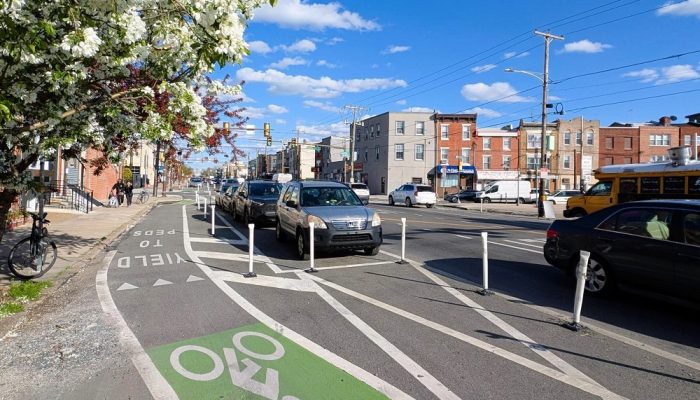In April 2024, President Biden announced Philadelphia as one of four new Workforce Hubs to ensure all Americans can access the good jobs created by the President’s Investing in America agenda, which includes the American Rescue Plan, the Bipartisan Infrastructure Law, the CHIPS and Science Act, and the Inflation Reduction Act.
As an initial step for the Workforce Hub, the City will implement new policies to create more pathways into well-paying jobs. These jobs are essential to support the hundreds of millions of dollars invested in public infrastructure.
Here’s what you need to know about how these policies will affect the city:
What are Geographic and Economic Hiring Preferences (GEHP)?
Geographic and Economic Hiring Preferences establish goals for the hiring of apprentices and journeypersons residing in economically disadvantaged communities. Implementing hiring preferences is an important tool to provide economic opportunity for all by creating access to careers with family-sustaining wages, as shown in the report Creating a Local Construction Workforce: Assessment of Current Use of Local and Economic Hiring Provisions, released by the U.S. Department of Transportation (USDOT) in April 2023.
How will Philadelphians benefit from GEHP?
The goal of GEHP is to benefit Philadelphia workers, contractors, and communities alike. Workers will benefit from increased access to careers in the construction trades that provide good-paying jobs. By prioritizing hiring from economically disadvantaged communities, GEHP will open pathways for individuals who may otherwise face barriers to employment and can benefit from the City’s economic growth and development. Hiring policies such as GEHP, are a recommended best practice by USDOT, have been shown to be an important strategy to diversify the local construction workforce, spread the economic benefits of infrastructure investments, and help to uplift communities by increasing access to good-paying careers.
GEHP aims to provide contractors with a trained and ready workforce for in-demand construction roles. As Philadelphia embarks on the millions of dollars in infrastructure projects, having a robust pool of skilled workers will be crucial for meeting project timelines and maintaining high standards of quality.
Which contract type(s) does GEHP apply too?
GEHP applies to select City public works contracts, such as those procured by the Streets Department, Water Department, and Airport (PHL/PNE). Contractors bidding on a public works project where GEHP applies will see a GEHP special provision document in the bid package.
What are the hiring goals of GEHP?
Apprentice Goals:
- At least 20% of apprentice-performed project work hours must be performed by workers who reside in economically disadvantaged communities at time of hire.
- At least 20% of apprentice-performed project work hours must be performed by workers who reside in economically disadvantaged communities at time of hire and who meet at least one individual qualifier.
Journeypersons Goal:
- At least 20% of journeyperson-performed project work hours must be performed by workers who reside in economically disadvantaged communities at time of hire.
The GEHP goals function to:
- Ensure that infrastructure workers, from planning to construction, reflect the population of Philadelphia.
- Increase hiring from economically disadvantaged communities on select public works contracts.
- Increase access and economic opportunities for workers who have historically faced high barriers to participation in construction and infrastructure careers.
- Ensure that the benefits of the historic federal investment in infrastructure improvements are shared among communities.




